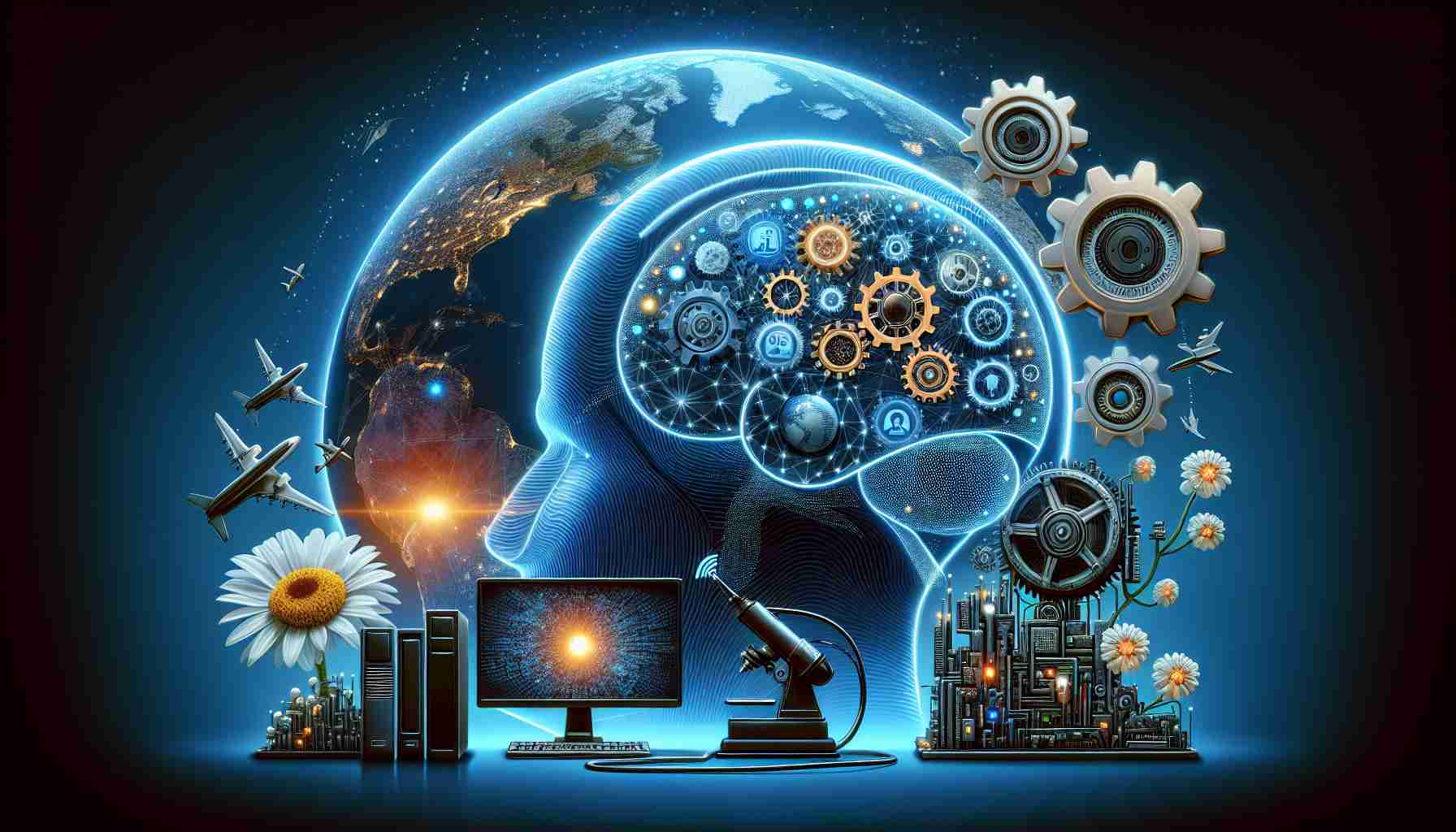IMF Director Sounds Alarm on Artificial Intelligence Job Threat
Kristalina Georgieva, the director of the International Monetary Fund (IMF), has cast light on the substantial effects that artificial intelligence (AI) is expecting to have on the global job market. In a movement reminiscent of a “tsunami,” she announced the transformation AI is bound to induce, potentially jeopardizing up to 60% of jobs worldwide within the next two years. Georgieva delivered these remarks during a conference affiliated with the University of Zurich’s Swiss Institute for International Studies.
AI’s Economic Disruption: Faster Than Anticipated
Against a backdrop of burgeoning AI capabilities, experts engaged by “Al Hurra” have suggested that the speed of AI’s labor market disruption could outpace even the IMF director’s projections. A recent analysis by IMF specialists indicates a dual effect of AI on jobs, replacing some while augmenting others, thus transforming global economic structures in profound ways.
Experts Debate: Threat or Revolution?
Fadi Ramzi, a professor of digital media at the American University in Cairo, has observed a rapid escalation in AI’s impact on employment prospects. The release of generative tools like “Chat GPT” in 2022 has already shown their monumental influence on job functions. According to Ramzi, perspectives on AI’s influence are bifurcated: Some view it as an ominous peril to job security, while others see opportunities for those who can leverage these technologies to their advantage.
Advanced Economies Face Higher AI Risks and Rewards
The IMF’s analysis, released in January, underscores the potential for approximately 40% of jobs worldwide to be influenced by AI technology. Developed economies, in particular, face greater risks due to the nature of jobs that require high skill levels. However, those same economies may also reap greater benefits from AI, given the proper integration enhancing productivity and creating new employment possibilities.
Global Divide in AI Preparedness
While the IMF has established an “AI Readiness Index” to measure global preparedness across various domains, a report revealed that wealthy economies are faring better in terms of AI adoption than low-income countries. Notably, no Arab nation ranked among the top 33 countries in this index—a stark indication of the disparities in digital infrastructure and institutional readiness.
This economic shift heralded by AI is not merely an advancement but a clarion call for a holistic and nuanced understanding of technology’s role in future employment landscapes. As AI continues to reshape the job market, it is imperative for both individuals and policymakers to embrace digital transformation strategically.
Key Questions and Answers
Q1: What types of jobs are most at risk from the AI transformation?
A1: Jobs that involve routine, repetitive tasks or those that can easily be codified into algorithms are generally considered to be at higher risk. This includes roles in manufacturing, data entry, and some customer service positions.
Q2: What new job opportunities could AI create?
A2: AI could create jobs in AI development and maintenance, cybersecurity, data analysis, and in sectors that leverage AI for innovative products and services, such as healthcare, finance, and transportation.
Q3: How can workers prepare for the changes brought about by AI?
A3: Workers can focus on lifelong learning, reskilling, and upskilling, particularly in areas where human skills are complemented by AI, such as emotional intelligence, creative problem-solving, and advanced technical skills.
Q4: How are governments addressing the challenges of AI in the job market?
A4: Some governments are investing in education and vocational training, updating labor laws, and providing social security systems to support the transition. Policies are also being developed to encourage innovation and regulate AI usage.
Key Challenges or Controversies
Automated Inequality: AI could exacerbate socio-economic inequalities if certain groups are disproportionately affected by job displacement and if the benefits of increased productivity are not evenly distributed.
Data Privacy and Ethics: The rise of AI raises concerns about data privacy, surveillance, and ethical decision-making in AI systems, especially in areas like recruitment or law enforcement.
Global Competition: There is growing competition for AI leadership, both economic and strategic, which could influence global power dynamics and create geopolitical tensions.
Advantages
Increased Efficiency: AI can process vast amounts of data more quickly and efficiently than humans, leading to productivity gains and cost savings for businesses.
Innovation: AI is driving innovation in many fields, leading to the creation of new products and services that can improve people’s lives.
Healthcare Improvements: AI has the potential to revolutionize healthcare through personalized medicine, early detection of diseases, and more effective resource management.
Disadvantages
Job Displacement: The automation of tasks through AI may lead to job displacement for workers, particularly for those in lower-skilled roles.
Social Impact: The rapid deployment of AI could lead to social upheaval if not managed carefully, including increased unemployment and societal inequality.
Dependence on Technology: There is a risk of becoming overly dependent on AI technology, leading to a loss of certain skills and potential vulnerabilities in critical systems.
For further information and resources on the broader topic of AI’s impact on society and the economy, you might visit:
– International Monetary Fund (IMF)
– Organisation for Economic Co-operation and Development (OECD)
– World Economic Forum (WEF)
These links can be valuable starting points for current data, reports, and discussions on the global implications of AI.

